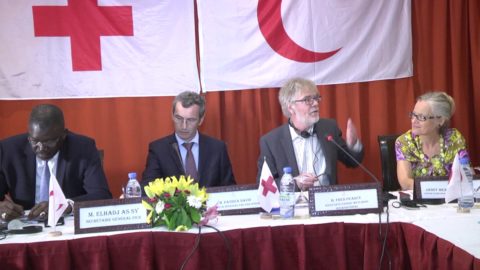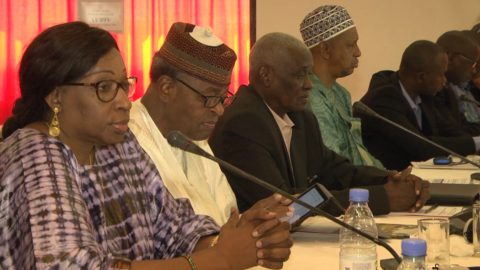The 2016 World Disasters Report has been published recently in Senegal by the International Federation of Red Cross and Red Crescent Societies. According to the report, the priority is to invest in solutions and partnerships that build resilience on the long term. Some presentations have been made. Among the panelists Fred Pearce who on behalf of Wetlands International talked about the Sahel wetlands which support tens of millions of people. He advocates the use of wetlands for disasters risk reduction worldwide.
Journalist and writer Fred Pearce has a solution for disasters risk reduction. “We are here to discuss improving resilience to natural disasters. I want to talk about the resilience of natural ecosystems, and how they provide communities with social and economic resilience. In particular I want to talk about wetlands and their role in the resilience of the Sahel. Places like the inner Niger delta in Mali, a vast wetland ecosystem under threat from abstractions for irrigation projects and hydroelectric schemes upstream. Or the delta of Senegal River, which has suffered badly from dams on the river’’.

In his address to the gathering, he asserted ‘’ If we are serious about improving the resilience of communities to natural disasters, we need to defend and then build on the resilience provided by natural ecosystems. Like wetlands’’, a reflection based on a trip to the Inner Niger Delta.
According to the 2016 World Disasters report made public in the Senegalese capital Dakar on Thursday, October 13, 2016 “The lack of global investment in building the resilience of communities exposed tens of millions of people to important risks of disasters, yet predictable and preventable’’.
For his part, Mr. El Hadj As Sy, the Secretary General of the International Federation of Red Cross and Red Crescent Societies (IFRC) indicated that “investment in resilience is the best way, we have to protect the lives, livelihoods and dignity of the most vulnerable people in the world.” “The status quo is no longer acceptable. It would result in more poverty and suffering ignored’’, he added.
Furthermore, the two co-editors of the report, David Sanderson and Anshu Sharma noted that “something has to change. The response to humanitarian challenges of today is not based solely on funding. We must invest in solutions and partnerships that build resilience on the long term…’’.

Nowadays challenges are enormous. The world is facing unprecedented crises. 98.5 million people are affected by disasters in 2015 and 65.3 million forcibly displaced, humanitarian needs are increasing, while resources don’t follow.
The 2016 World Disasters Report’s theme is ‘’Resilience: saving lives today, investing for tomorrow’’. According to one of the panelists, saving lives today, is feed and care, investing for tomorrow is educate and train. Several dignitaries attended its launch.